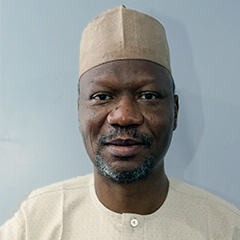Worsening oil revenues and the COVID-19 pandemic have combined to accentuate the need for Nigeria to diversify its economy.
It is no gainsaying that Nigeria can no longer depend on oil revenue to fund its budgets.
The plunge in global oil prices which has greatly affected the nation’s finances, therefore, demands that Nigeria intensifies the exploitation of solid minerals as a sure alternative.
This is more so because from the north to the south, there is hardly any state in Nigeria that does not have solid minerals in commercial quantities.
For instance, the Nigerian mining roadmap shows that Nigeria has 568 trillion tonnes of proven reserves of limestone, and a potential total reserve of 2.3 trillion tonnes, yet only 11 million tonnes are quarried annually.
Early in the year, President Muhammadu Buhari launched the Presidential Artisanal Gold Mining Development Initiative with the possibility of generating 250,000 jobs and more than 500 million dollars in taxes and royalties if vigorously pursued.
The initiative would foster the formalisation and integration of artisanal gold mining activities into the nation’s legal, economic and institutional framework.
Also, the Minister of Mines and Steel Development, Olamilekan Adegbite, affirmed that Nigeria’s mining sector was on track to reach its goal of 5 per cent GDP contribution in the next five years.
The minister confirmed that Nigeria is endowed with more than 44 different mineral types occurring in more than 500 locations across the 36 states and the FCT.
Seven of these minerals which are coal, iron ore, bitumen, gold, limestone, lead-zinc and barite, have been designated strategic to unlock the enormous potential in the sector.
“Alongside the seven strategic minerals, the ministry is also looking into key minerals to fuel the future.
“These include metals such as titanium, tungsten, lithium and cobalt, which have various applications in futuristic industries such as aerospace, telecoms and electric vehicle manufacturing,,’’ he said.
“We are on the verge of completing the automation of the Mining Cadastre System to meet international standards for online mineral title and license applications.
“This eliminates bureaucracy while improving the ease of doing business in Nigeria’s mining sector.
“We, in partnership with the British Geological Survey, are establishing a Nigeria Geo-Data Centre at the Nigerian Geological Survey Agency to ease online access to geological maps and datasets for use in academia, investment decisions and general research purposes,’’ he added.
A report by the Lagos Chamber of Commerce and Industry projects further contraction in the oil sector in the light of lower oil production in compliance with the Organisation of Petroleum Exporting Countries agreement.
This is why the mining arm of the diversification agenda must be accelerated and propelled to keep the nation running as soon as possible.
Currently, the sector contributes less than 1 per cent to the GDP, whereas, if fully exploited and harnessed can contribute 5 per cent or an estimated 27 billion dollars by 2025.
Nigeria’s mining sector may grow to be the hub of sub-Saharan African market, but the sector remains largely constrained by insufficient data, investments and technology.
Insecurity in the country also poses a challenge to the attainment of the goals of the mining roadmap.
Meanwhile, the Organised Private Sector has pushed for government’s focus on the development and deployment of value addition initiatives on the nation’s abundant mineral deposits.
Amb. Ayoola Olukanni, Director-General, Nigerian Association of Chambers of Commerce, Industry, Mines and Agriculture (NACCIMA), advocated the full exploitation of the industry via joint efforts by all levels of government and the private sector.
This, he stated, would attract foreign investments and engender investors’ confidence.
He expressed regret that solid minerals deposits had existed for hundreds of years in Nigeria, but had never gotten the required attention for development.
“The vast mineral deposits in Nigeria stretching across every state of the federation are very significant.
“With the quest for economic diversification, they deserve to be harnessed by the federal and state government and the private sector.
“Urgent action should be taken for the development of the deposits and the states where the deposits are should see themselves as major stakeholders,’’ he said.
Olukanni opined that tax incentives and appropriate pioneer status incentives should be given to interested private sector developers of bitumen.
“For NACCIMA, the mining sector is a priority area for us; that is why the NACCIMA Mining Forum is focusing attention on the sector.
“We see bitumen deposits as a major asset that must be fully developed in our quest to harness the vast mineral deposits in our country.
“As the country struggles to reposition the economy in the post COVID-19 era, especially through the Economic Sustainability Plan, development of our mining sector must be given top priority,” he said.
Also, Babatunde Alatise, Chairman, Mining, Solid and Allied Services Group, Lagos Chamber of Commerce and Industry asked for the building of refineries to add value to the raw minerals deposits, particularly bitumen to totally eliminate the importation of asphalt, a material used for road construction.
Alatise also stated that the nation has so many mineral deposits in commercial and exportable quantities to reduce its dependence on oil. (NAN)



